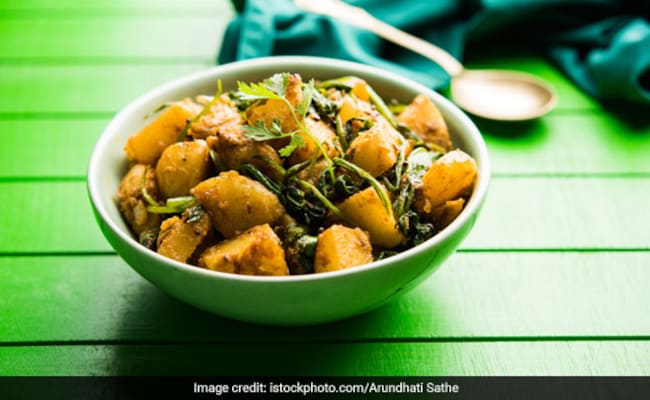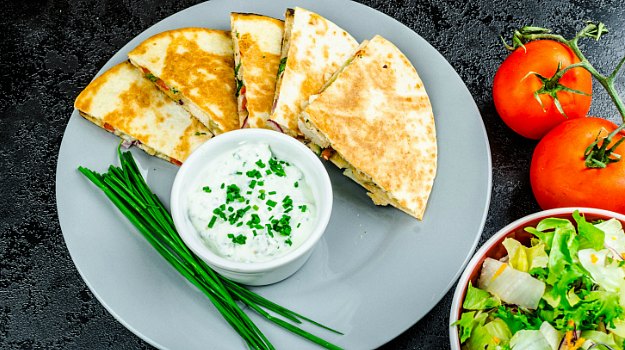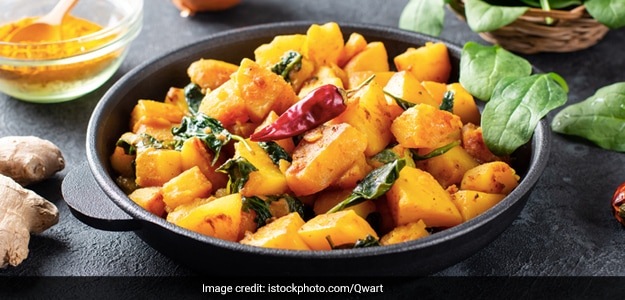If you ask anyone about Nepalese cuisine, they're sure to mention momos and dal bhat, but there is a gamut of delectable delights in the heart of the himalayas. Lentils and rice often form the base of some of these iconic Nepalese meals, and variety of herbs, vegetables and meats add a mix of fresh and smoky flavour to it. Compared to Indian and Tibetan cuisine, Nepalese cuisine is fairly simple and satisfying. It has some really delicious yet healthy meals including sel roti, samay baji, yomari, chatamari et al.
Also Read: Khatte Lehsuni Aloo - A Must-Try Recipe If You Love Sookhe Aloo In Your Indian Meal
Known as Nepalese piro aloo, also called as Aloo Sadeko is almost like Indian dum aloo but way spicier than it. 'Piro' stands for chilli and 'Aloo' as we all know is potato. And as the name suggests, this dish is going to be spicier than it appears. Nepal is very famous for Piro Aloo as it is made with special kind of red chillies that are widely available in the Himalayas. It is often served as a part of a meal (typically sabzi) and sometimes as an evening snack with bhujia over it.
How to make Nepalese Piro Aloo :

Piro Aloo is a spicy, flavourful and very easy to make potato fry dish.
This dish will make you fetch for another glass of water, yet the taste is such that you cannot stop at one helping. To begin making Piro Aloo, all you have to do is heat 2 tablespoons of mustard oil and add fenugreek seeds, dried red chillies, and let it splutter. Then, add drained potato wedges, turmeric powder, salt and give it a good stir. Add ginger, garlic paste and other spices and saute till the potatoes soak the mixture completely. Garnish it with coriander leaves and bhujia. You can also pair it with chapatis or any other breads of your choice.
It is definitely worth trying and gives a perfect pahaadi touch to the food.
Click here for the step-by-step detailed recipe.
Try this hilly loved food at home and let us know how you liked it in the comment section below.
(This content including advice provides generic information only. It is in no way a substitute for qualified medical opinion. Always consult a specialist or your own doctor for more information. NDTV does not claim responsibility for this information.)










